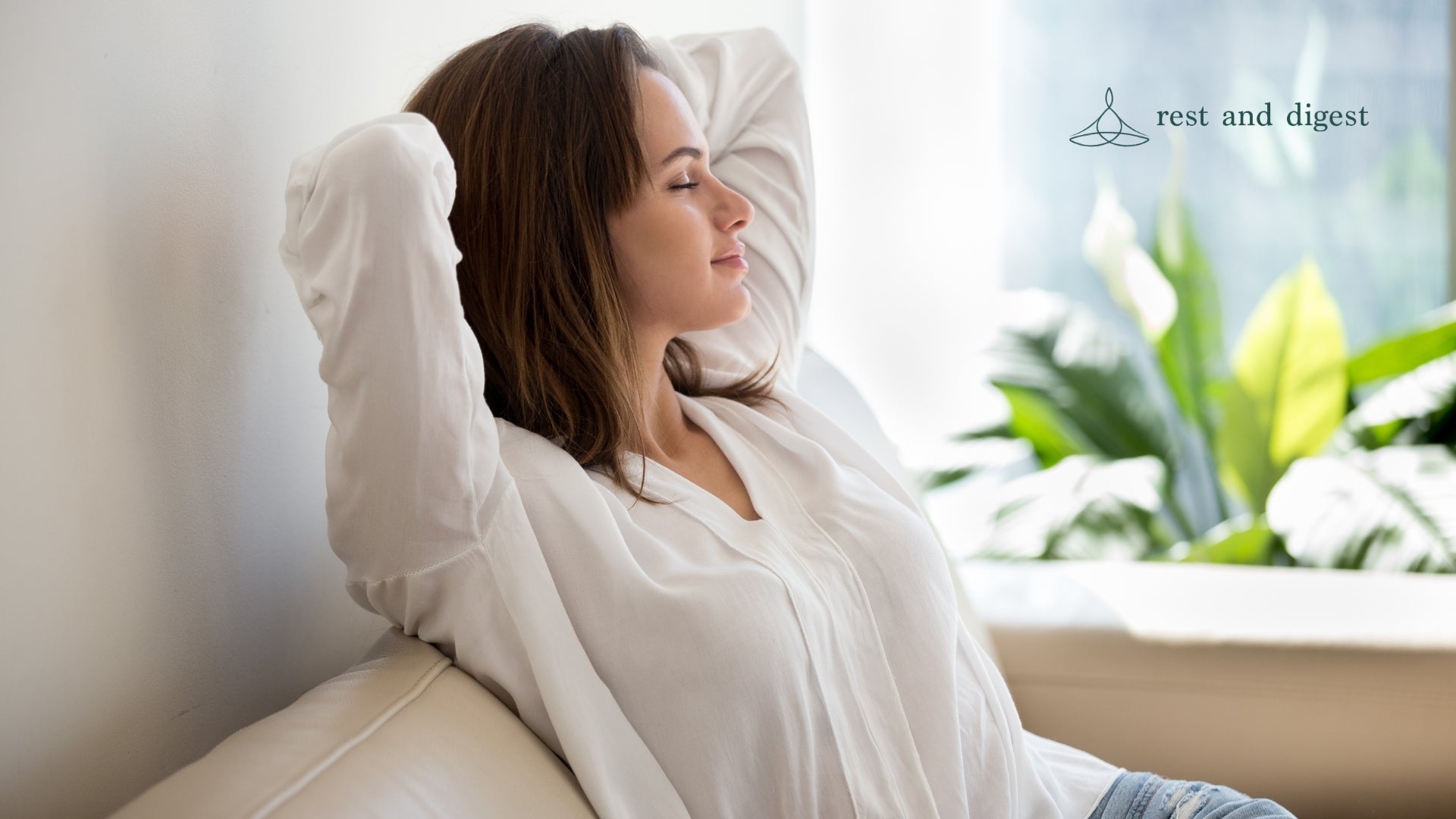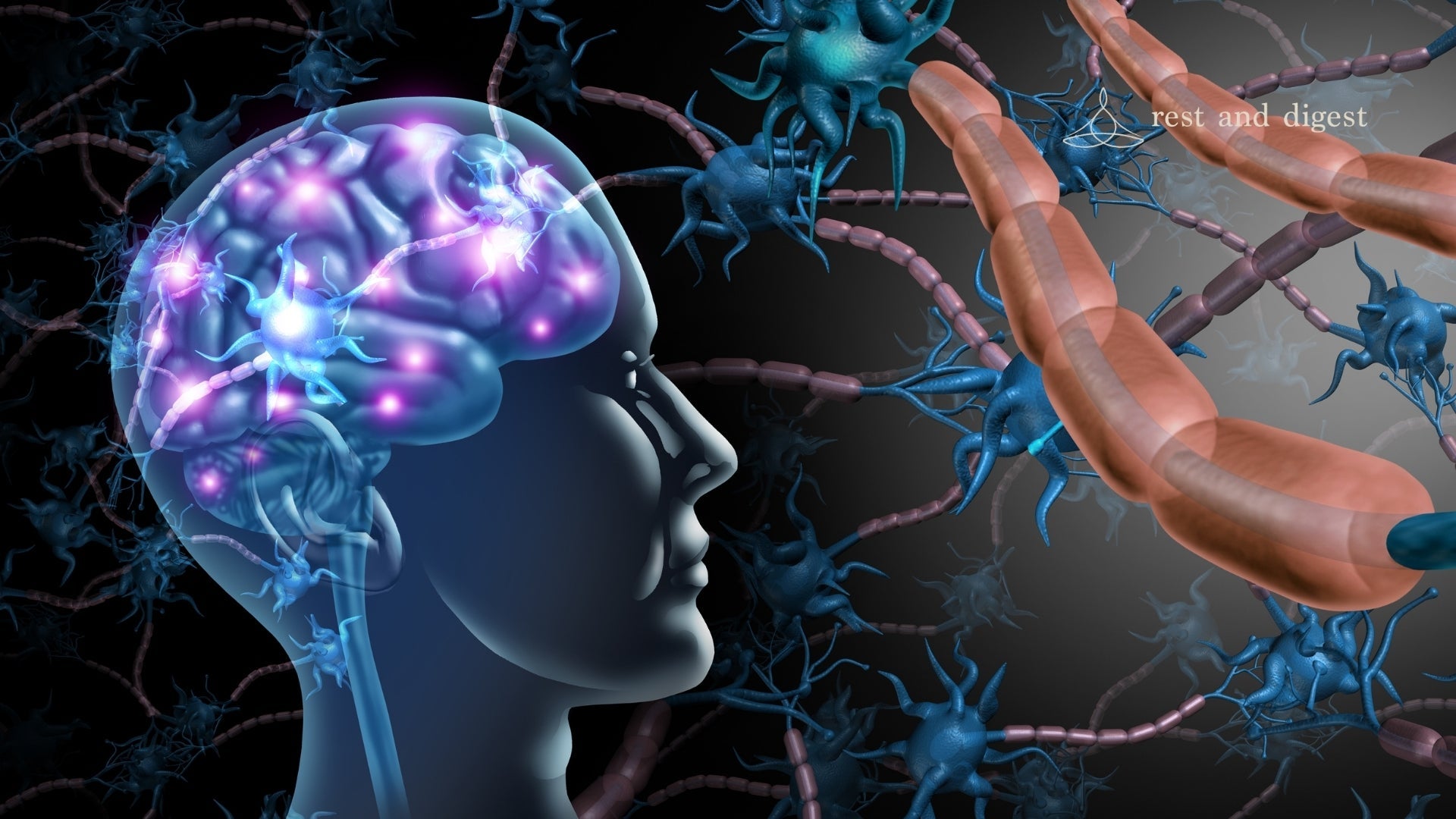
The Parasympathetic Nervous System Explained
The parasympathetic nervous system (PSNS) is a part of the autonomic nervous system, known as the “rest and digest” system. Its job is to conserve energy, relax and balance the body. By understanding how it works and its role in our overall health we can appreciate how important it is and how to support it.
This article will go into the parasympathetic system in depth, including its functions, effects, and disorders and how to keep it healthy.
What Is The Parasympathetic Nervous System?
The parasympathetic nervous system (PSNS) is one of the two parts of the autonomic nervous system, the other being the sympathetic nervous system. While the sympathetic nervous system prepares the body for action by triggering the “fight or flight” response, the parasympathetic system does the opposite. It calms the body, slows down the heart rate, stimulates digestion and relaxes. This system is responsible for homeostasis, or the body’s internal balance and is key to recovery and restoration.
How Does It Work?
The parasympathetic system works through a network of nerves that come from the brainstem and sacral region of the spine and extend all over the body. It uses the neurotransmitter acetylcholine to send the signals that control the body’s functions. The vagus nerve is the main nerve of this nervous system and controls many of the body’s main functions including heart rate, digestion and breathing.

Functions
The parasympathetic nervous system is responsible for many functions that help the body rest. These are:
- Slowing Heart Rate: One of the main functions of this system is to slow the heart rate, conserve energy and relax.
- Stimulating Digestion: The system stimulates digestion by increasing saliva, peristalsis (the movement of food through the digestive tract) and digestive enzymes.
- Regulating Breathing: The parasympathetic nervous system also slows down breathing and helps the body relax and recover from stress.
- Promoting urination And Defecation: By stimulating the bladder and intestines the system eliminates waste from the body.
Key Components
Several key components make up the parasympathetic nervous system. Each plays a specific role in regulating bodily functions.
- Vagus Nerve: The vagus nerve is the main nerve of this system. It comes from the brainstem to the chest and abdomen and controls heart rate, digestion and breathing.
- Cranial Nerves: Other cranial nerves like the oculomotor, facial and glossopharyngeal nerves are involved in parasympathetic activities like pupil constriction, saliva production and tear secretion.
-
Pelvic Splanchnic Nerves: These nerves come from the sacral region of the spine and are involved in bladder and bowel function.
Effects
The parasympathetic nervous system has a significant impact on our body; it affects almost every major organ. It works with the sympathetic nervous system to allow the body to recover and balance after stress or exercise.
How Does The Parasympathetic Nervous System Affect the Body?
The parasympathetic system makes the body calm and relaxed. When activated it slows down the heart rate, lowers blood pressure and diverts energy to digestion and tissue repair. It also boosts immune function and improves sleep and mental well-being by reducing anxiety and promoting relaxation. By engaging this system, the body can go into rest and digest mode which is essential for recovery and overall health.
What Happens When It is Overactive?
An overactive parasympathetic nervous system can lead to various systems and conditions including;
- Bradycardia: Slow heart rate which can cause dizziness, fatigue and fainting.
- Hypertension: Low blood pressure which can cause lightheadedness and weakness.
- Digestive Issues: Overstimulation of digestive processes can cause excessive salivation, nausea and diarrhoea.
- Fatigue: Prolonged activation of this system can cause excessive tiredness and lethargy.
What Happens When It Is Underactive?
When the PSNS is underactive the body can’t recover from stress and can cause:
- Tachycardia: Fast heart rate which can cause palpitations and anxiety.
- Hypertension: High blood pressure which can cause heart disease and stroke.
- Digestive Issues: An underactive system can also cause reduced digestive efficiency which can lead to constipation, bloating and indigestion.
-
Insomnia: Difficulty in relaxing can make it hard to fall asleep or stay asleep.
What Are The Disorders Of The Parasympathetic System?
Disorders of the parasympathetic system can disrupt the body’s ability to maintain homeostasis and cause a multitude of health problems. These can affect heart rate, blood pressure, digestion and other vital functions so it’s important to recognise and address them as soon as possible.
What Are The Symptoms?
Symptoms of parasympathetic system disorders can vary depending on the condition but may include:
- Irregular heart rate (bradycardia and tachycardia depending on whether the system is overactive or underactive).
- Digestive problems such as bloating, constipation or diarrhoea.
- Blood pressure fluctuations like hypotension and hypertension.
- Chronic tiredness and general weakness are common.
- Mental health disorders like stress, anxiety and depression.
How Are Parasympathetic System Disorders Diagnosed?
Diagnosing parasympathetic nervous system disorders involves a combination of medical history, physical exam and testing. Here are common tests:
- Heart Rate Variability(HRV) Testing: This measures the time variation between heartbeats which can indicate parasympathetic function.
- Blood Pressure Monitoring: Continuous monitoring can show fluctuations that indicate parasympathetic dysfunction.
- Autonomic Reflex Testing: This tests how the autonomic system responds to stimuli to diagnose PSNS disorders.
- Imaging Studies: MRI and CT scans can rule out structural issues that may be affecting the system.
What Are The Treatment Options For Disorders?
Treatment for PSNS disorders depends on the underlying cause and may include:
- Medications: Drugs that influence neurotransmitter activity such as beta-blockers or cholinergic agents can regulate parasympathetic function.
- Lifestyle Changes: Diet, exercise, and stress management can improve the system's health and symptoms.
-
Surgery: In rare cases, surgery may be needed to address structural issues affecting the system.
How Can You Keep It Healthy?
Keeping your parasympathetic system healthy is key to overall well-being. By making some lifestyle changes and adding in relaxation techniques you can support this system and your body’s ability to recover from stress.
What Lifestyle Changes Can Help?

Some lifestyle changes can support the parasympathetic system:
Regular Exercise: Exercise especially yoga and tai chi can stimulate parasympathetic activity and relaxation. These exercises are great for engaging the “rest and digest” response and keeping the body in balance.
For an added boost to your exercise routine, consider using our Yoga Bundle, which includes a jute and rubber yoga mat, a yoga mat carry strap, and cork yoga blocks. These quality essentials make practising yoga at home more accessible and enjoyable.
Healthy Diet: A balanced diet full of fruits, vegetables and omega 3’s supports overall nervous system health. Proper nutrition gives the body what it needs to support parasympathetic function.
To complement your diet, try incorporating Better Tea Hemp Relief, which features organic hemp, turmeric, ginger, and black pepper. This blend provides anti-inflammatory benefits and supports overall health, helping to keep your parasympathetic system in check.
Good Sleep: Sleep is essential for unwinding and also for overall health and well-being. Incorporate Better Tea Sleep Tea Loose Leaf into your nightly routine for additional support. This tea, with valerian root, lemon balm, passionflower, and lavender, helps calm the nervous system and prepare you for restful sleep.
Enhance your bedtime routine with The Base Collective Beauty Sleep Balm, a lavender-scented lotion that deeply moisturizes and relaxes tired muscles, aiding in restful sleep. For an extra touch of luxury, try our Beauty Sleep Bundle, which includes a silk pillowcase for a fresh and natural restful night’s sleep.
Make sure you have a good sleep routine, both at night and in the morning. Our analog alarm clock can help you wake up consistently each day to start your morning off on a positive note. No devices - just a good old fashioned analog or digital alarm clock to get you into the rhythm of each day.
Mindfulness Practices: Meditation and deep breathing can also activate the parasympathetic nervous system and reduce stress. These practices can trigger the relaxation response and allow the body to relax and recover.
Enhance your mindfulness practice with Serene Body Health’s natural body fragrances. The Serene Rest fragrance blend, featuring lavender, cloves, sandalwood, and sage, can help you unwind and relax, promoting a deeper state of mindfulness.
What Are Some Relaxation Techniques To Stimulate It?
Some relaxation techniques can stimulate the parasympathetic nervous system and get you into a rest and digest state:
Deep Breathing: Slow, deep breaths can activate the parasympathetic system and relaxation. This will get your body into a deep state of calm and reduce stress and anxiety.
Progressive Muscle Relaxation: Tense and then relax different muscle groups to reduce stress and stimulate the parasympathetic function. This will get your body into relaxation by releasing physical tension.
Complement this practice with Hayo’u’s Gua Sha Beauty Restorer, which comes in jade or rose quartz. This tool helps to relax and rejuvenate the skin, aiding in physical tension release.
Guided Imagery: Visualise calm scenes to increase parasympathetic nervous system activity and reduce anxiety. By engaging your mind in peaceful imagery this will trigger the body’s natural relaxation response.
Massage Therapy: Massage can further increase parasympathetic activity by relaxing and reducing muscle tension. This will get your body to rest and aid in recovery and overall well-being.
Use Hayo’u’s Jade Body Comb Massager for scalp stimulation and improved skin elasticity. Additionally, The Base Collective Magnesium Bath Salts can be used in a warm bath to calm muscles and reduce stress, enhancing your massage experience.
How Can You Reduce Stress To Support It?
Supporting the parasympathetic nervous system means reducing stress. Besides practising relaxation and making some changes to your lifestyle, it is also important to build and maintain strong social connections. Positive relationships give emotional support and help the body relax and recover.
For a thoughtful gift that encourages relaxation, our self care and relaxation hampers, which include various calming products like Better Tea’s Sleep Tea Loose Leaf and Hayo’u’s Beauty Oil.
The parasympathetic nervous system is key to internal balance, relaxation and recovery. By understanding how it works, knowing the signs of dysfunction and living a healthy lifestyle we can keep our parasympathetic system strong and robust. By using techniques that trigger the rest and digest response we get better health, less stress and more feeling of wellbeing.





